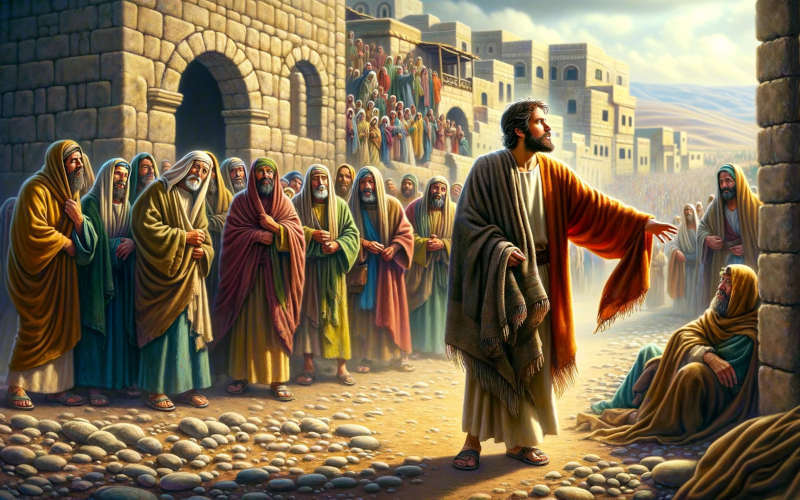Wisdom in the Rearview Mirror

Imagine a 93-year-old lady, vibrant and full of life, attending a joyous birthday bash at the iconic Durham Cathedral. The celebration wraps up, and she heads out, stepping into her car for the journey home. But here's where the plot takes a twist. In a moment that blends a bit of comedy with an everyday lapse in attention, she decides her shoes aren't quite right for driving. So, she pulls over, not to the side but rather into the flow of life's unpredictable events. In her attempt to swap her shoes, her car, seemingly with a mind of its own, creeps forward, gently nudging another vehicle. A minor mishap, yes, but one that brings us to a pause, prompting a chuckle and a ponder.
This story, while light-hearted, serves as a mirror to our own lives. How often do we find ourselves, perhaps not changing shoes, but drifting on autopilot, unaware of where we're actually headed? It's easy, isn't it? To cruise through the days, months, even years, only to look in the rearview mirror and wonder, "How did I get here?"
Today, we're going to explore what it means to live wisely in a world that often feels like it's set on autopilot. Let's dive into wisdom as our divine GPS, guiding us through life's journey with purpose, intention, and a bit of divine intervention.
The Quest for Wisdom in a Google-Driven World
We live in an era where a quick Google search can offer us information on just about anything. Need to fix a leaky tap? Google it. Want to learn a new language? There's an app for that. Our hunger for instant knowledge seems limitless, yet, in this sea of information, true wisdom appears to be a rare find. It's a modern paradox: we've never been more informed, yet the depth of understanding and wisdom seems harder to grasp.
Enter Solomon, a king from a time when Google was unfathomable, yet his quest for wisdom remains one of the most relatable stories to this day. When given the chance to ask for anything—wealth, power, fame—he chose wisdom (2 Chronicles 1:7-12). Why? Solomon knew that wisdom was the key not just to ruling a kingdom, but to living a life of purpose and meaning. His choice underscores a profound truth: wisdom isn't about having all the answers, but about knowing how to navigate life's complexities with discernment and grace.
Today, Solomon's ancient request invites us to pause and reflect on our own values. In a world that celebrates the accumulation of knowledge and material wealth, how often do we seek the kind of wisdom that guides hearts and shapes destinies? Solomon's story isn't just a historical account; it's a radical invitation to pursue a deeper, more meaningful path in our information-saturated age.
Wisdom’s Roadmap: Beyond Knowledge
Wisdom goes far beyond mere knowledge. It's not just about accumulating facts or mastering skills. Instead, wisdom is the art of applying understanding in alignment with God's will, making decisions that reflect not just what we know, but who we are in Him. It's the difference between knowing the right thing and doing the right thing, especially when the path isn't clear.
Consider the everyday choices we face: how to manage finances, nurture relationships, or handle conflicts. Knowledge can inform us of our options, but wisdom guides us to choose the path that aligns with our values and God's plan. It's wisdom that whispers, "This is the way; walk in it," when we stand at life's crossroads.
Scripture provides us with the ultimate guideposts for this journey. Proverbs 3:5-6 encourages us, "Trust in the Lord with all your heart and lean not on your own understanding; in all your ways submit to him, and he will make your paths straight." Meanwhile, James 1:5 promises, "If any of you lacks wisdom, you should ask God, who gives generously to all without finding fault, and it will be given to you." These verses aren't just words; they're invitations to a life guided by divine wisdom, where each decision is a step taken in faith, trusting that God's way is the path to true fulfilment and purpose.
Navigating Life’s Highways with Wisdom
The parable of the shrewd manager in Luke 16:1-13 often puzzles us. Here's a manager, facing the loss of his job for squandering his master's resources, who makes a series of seemingly dishonest decisions to secure his future. Yet, Jesus doesn't highlight his deceit but his shrewdness, urging us to glean wisdom from his foresight and strategic planning. This isn't about endorsing unethical behaviour; rather, it's a call to use what's in our hands wisely for God's kingdom.
The essence of this parable challenges us to look at our own lives—our time, talents, and resources—and consider how we're investing them. Are we squandering what we've been given on fleeting pursuits, or are we strategically planning for eternal impact? Wisdom in stewardship means recognising the temporal nature of our earthly resources and using them in ways that contribute to lasting, spiritual dividends.
This approach requires a mindset shift: viewing everything we have as tools for God's purposes, not just our own. Whether it's time spent serving others, talents used to spread the gospel, or resources allocated towards those in need, wise stewardship reflects a heart aligned with God's kingdom values. It's about investing in what truly lasts, preparing not just for our earthly future but for our eternal one.
The Ultimate Treasure Hunt
In Matthew 6:19-21, we're cautioned against laying up for ourselves treasures on earth, where moth and rust destroy and where thieves break in and steal. Instead, we're urged to store up treasures in heaven—where true, unending value is found. This contrast between earthly and heavenly investments invites us to consider deeply where our treasure, and thus our heart, truly lies. It's a call to prioritise not what is seen and temporary, but what is unseen and eternal.
Enter Ruth, a Moabite woman, whose story unfolds in the Old Testament with themes of loyalty, redemption, and divine providence. Ruth's decisions—leaving her homeland, clinging to Naomi, and working tirelessly in Boaz's fields—were not just wise; they were spiritually discerning. Her choices reflected a heart invested in the welfare of others and in God's unfolding plan. Unbeknownst to her, Ruth's faithfulness would position her in the lineage of David and, ultimately, Jesus Christ. Her story exemplifies how our earthly decisions can have heavenly repercussions, impacting generations to come.
Ruth's legacy reminds us that the ultimate treasure hunt is not for worldly wealth, but for a life rich in faith, hope, and love—the treasures of heaven that never fade. It challenges us to live in such a way that our choices today ripple through eternity, laying up treasures not just for ourselves, but for the kingdom of God.
Crafting a Legacy of Wisdom
Every day, with every decision, we are building a legacy. But what kind of legacy will it be? As we navigate life's complexities, we're called to live not just for the moment but with eternity in mind. This isn't about crafting a name that will echo through the ages of human history but about sowing seeds that will bloom in the eternal kingdom of God. Living intentionally means making choices that reflect not just our desires but God's desires for us and those around us. It's about seeing beyond the immediate to the everlasting, aligning our lives with the values of the kingdom: love, justice, mercy, and faithfulness.
Wisdom doesn't thrive in solitude; it blossoms within the community. As iron sharpens iron, so one person sharpens another (Proverbs 27:17). Our journey towards wisdom is enriched and deepened through relationships—through giving and receiving advice, through the shared joys and trials, and through the mutual pursuit of God's will. It's in community that our individual sparks of insight ignite into a collective blaze of understanding, lighting the way not only for us but for those who follow.
By fostering a legacy of wisdom, grounded in intentional living and community, we contribute to a world that extends beyond our own lives, integrating into God's eternal story. Let us then strive to be builders of such a legacy, one that endures and glorifies God, generation after generation.
The Journey Forward
As we stand at the crossroads of our journey, it's crucial to pause and reflect. How have we navigated the winding roads of life thus far? Have there been moments when we've leaned heavily on our own understanding, only to find ourselves veering off course? Conversely, can we recall times when seeking God's wisdom illuminated our path with clarity and purpose, guiding us through the fog of uncertainty?
This moment of reflection isn't just an end but a beginning. It's an opportunity to commit—or recommit—to placing God's wisdom at the forefront of our decision-making. Imagine the peace that comes from knowing you're not just relying on your own insights but are being led by divine wisdom that sees far beyond the horizon of our understanding.
Let's take this moment, together, to quietly vow to seek that wisdom first. To ask for it in prayer, to search for it in Scripture, and to listen for it in the counsel of those walking this faith journey alongside us. As we step forward from here, let's do so with the confidence that comes from being guided not by the shifting sands of our own perceptions but by the solid rock of God's eternal wisdom.


